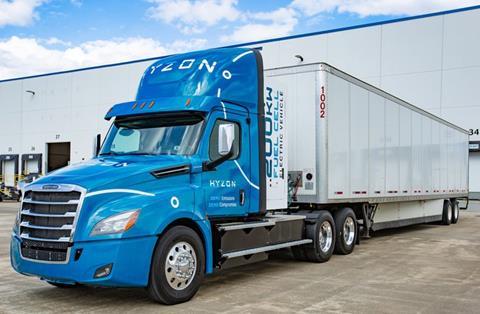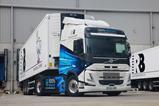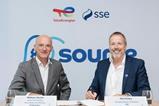Hyzon Motors is tracking in line with its annual vehicle deplopyment targets, anouncing it has 19 hydrogen-fuelled vehicles currently in operation around the world.

Among these deployments, five vehicles were introduced to the US, serving both drayage and large fleet customers. Additionally, three trucks were deployed in Europe, and 11 in Australia. The US deployments included the industry’s first publicly-announced sale and delivery of a heavy-duty Fuel Cell Electric Truck in the country.
Hyzon Motors’ CEO, Parker Meeks, emphasised the company’s accomplishments in 2023, citing the successful deployment of 19 Fuel Cell electric vehicles (FCEVs) and advancements in its industry-leading 200kW fuel cell technology. The technology, which progressed from B- to C-sample development, is a single-stack system that boasts improvements in weight, volume, and cost compared to its predecessor.
The company met its annual guidance target of 15-20 vehicles, with strategic deployments globally. The US deployments, particularly in drayage at the Port of Los Angeles and Long Beach, signify Hyzon’s entry into the significant US drayage market. The company expects this sector to be a key driver of long-term growth.
Looking ahead to 2024, Hyzon anticipates achieving several milestones, including the start of production for its 200kW fuel cell system, delivering the first 200kW FCEVs for trials, and advancing its overall fuel cell vehicle product offerings. The continued progress aligns with the growing support and investment in the Hydrogen ecosystem from both US and International governments.
Hyzon’s commitment to in-house development and production remains evident, with the company creating key components for its 200kW Fuel Cell Systems (FCSs) at its production facility in Bolingbrook, Illinois. This includes proprietary electrode formulations and the use of its roll-to-roll Membrane Electrode Assembly (MEA) manufacturing line. As Hyzon enters the C-sample development phase for its 200kW FCS, it follows the standard automotive product development methodology, further solidifying its position in the fuel cell vehicle market.


















